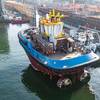Increase the Naval Shipbuilding Rate to Maintain a Navy: The Bush Administration’s 5-year shipbuilding plan will drop the force to 244 ships. The first installment in the process of restoring the Navy’s fleet to the bare bones minimum, defined in the 2001 QDR, is to add one DDG-51 destroyer, one LPD-17 amphibious transport dock ship, complete the purchase of the LHD-8 amphibious assault ship, and add advanced procurement dollars for an economic order quantity production of the Virginia Class Submarine in FY 2003.
“Tax on Delivery” of Naval Ships: H.R. 2189/S.666 will correct an inequity in the Tax code that severely penalizes naval shipbuilders by strengthening the shipbuilding industry’s cash flow to allow for greater investment in facilities, technology, and people to reduce the cost of naval ships. It will also allow shipbuilders to pay vendors in a timely fashion. Under the Tax Code, naval shipbuilders must estimate what their profits maybe three to seven years into the future and pay taxes on a percentage of their anticipated profit annually. This “Percent of Completion Method of Accounting” diverts critical cash needed in a ships’ construction phase to income tax payments that may be not realized. These bills will change the Tax code to allow a shipbuilder to pay taxes on income earned upon delivery of each ship. The builder will pay the same amount of taxes, but pay them when the profit is known and earned.
Promote Title XI Financing for Commercial Ship Construction: Increase the Maritime Association’s FY03 budget for Title XI by $50 million to help meet the national goals of increased energy self-sufficiency, increased commerce, and a strengthened defense industrial base. The Title XI Ship Loan Guarantee Program, managed by MARAD, makes financing available to small and medium-sized ship operating companies at comparable terms and rates as those available to large corporations. This Program is directly responsible for the U.S. construction of 10-double-hulled oil tankers, RoRo cargo ships, and other vessels to expand U.S. Commerce. Commercial shipbuilding reduces the cost of naval ships and sustains the skilled workforce and vendor base of the defense shipbuilding industry during historically low rates of naval ship production. Today, there are pending applications for six more environmentally safe double-hulled oil tankers, a chemical tanker, and the potential for 20 to 40 double-hulled offshore shuttle tankers to serve the growing Floating Production, Storage and Offshore Loading (FPSO) market in the Gulf of Mexico along with numerous other ship construction projects to replace and expand the U.S. fleet.
Improve the Maritime Security Program (MSP): The Maritime Administration’s Maritime Security Program (MSP) promotes a U.S. Merchant Marine, and provides sustainment sealift to the Department of Defense in times of national emergency. U.S. citizen operating companies engaged in international commerce that register their ships in the United States and employ U.S. citizen crews are eligible for a $2 million per ship subsidy to offset the higher cost associated with operating under the U.S. flag. The Program will expire at the end of 2005. As discussion begins on reauthorizing the Program, it is important to look at ways to improve MSP to enhance its role in meeting national security objectives in times of peace and war. A glaring weakness in the Program is that it does nothing to strengthen the defense shipbuilding industrial base, and in fact, weakens the base by encouraging U.S.-flag ship operators to buy their ships from foreign subsidized shipyards. This practice actually strengthens the industrial capability of potential American adversaries, such as China, to the detriment of American sea power. ASA will work with Congress and the Administration to foster American construction of the ships participating in the MSP fleet so that the program can better serve the Nation as the sixth branch of the Armed Forces.
Support the Jones Act and Passenger Vessel Services Act: These laws require vessels transporting cargo passengers between two U.S. ports to be built in the United States and operated by U.S. companies employing American crews. The purpose and need for these laws is to strengthen American sovereignty and the shipbuilding industrial base, including the highly skilled workforce on land and at sea, to meet America’s security requirements.
Sponsored Content
Innovative Hull Maintenance: Profitable & Green

Subscribe for
Maritime Reporter E-News
Maritime Reporter E-News is the maritime industry's largest circulation and most authoritative ENews Service, delivered to your Email five times per week













